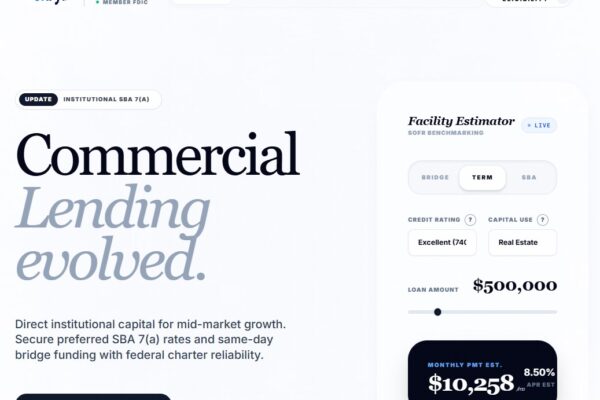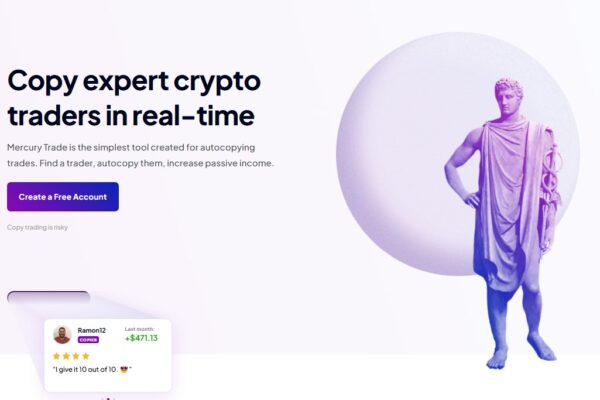KoinCycle.online Scam Review -A Liar In Disguise
KoinCycle.online presents itself with the visuals and language of a modern crypto or trading service, but it shows a cluster of practical warning signs that, taken together, form a high-risk profile. Opaque ownership, limited verifiable credentials, marketing that emphasizes quick returns and VIP access, and operational patterns that often precede withdrawal friction are all present. Below is a structured, plain-English breakdown of what to watch for and why this site warrants extreme caution.
Opening — the late-night app pitch that feels too convenient
Imagine scrolling social media late at night and landing on a slick ad: “KoinCycle — cycle your crypto to fast returns.” The landing page is polished, there are upbeat testimonials, and a friendly chat pop-up asks if you’d like a demo. For busy people looking for a simple path to returns, that flow is persuasive; it feels like a shortcut.
It’s exactly the kind of convenience that many high-risk operators design for: make onboarding effortless, show early “wins” to build trust, then accelerate deposits. When the fundamentals behind that convenience are opaque, the shine becomes a masking tactic. This review peels back the marketing to examine the structural signals that matter.
1 — Surface polish vs. verifiable provenance
KoinCycle.online uses the toolkit that converts well online: clean UX, finance buzzwords (automation, yield, algorithms), and tiered account options suggesting better results for larger deposits. That’s the presentation. The important question is what proof sits behind the presentation.
Key provenance elements that trustworthy platforms publish and that appear missing or vague here:
-
A clear legal entity name and company registration that you can verify in public records.
-
Named directors or executives with traceable professional histories.
-
A physical, verifiable business address and transparent contact channels.
-
Clear statements about who holds client funds (custodian/bank) and the legal jurisdiction that governs accounts.
When those anchors are not present, a polished interface becomes persuasive packaging rather than evidence of institutional substance.
2 — Regulation: the single most important missing piece
In financial and crypto services, regulation is the backbone of client protections: it enforces fund segregation, reporting, and minimum operational standards. Legitimate firms publish licence numbers and the regulator’s jurisdiction so users can confirm them independently.
KoinCycle.online does not prominently display verifiable regulatory credentials. Marketing may reference “compliance” or “secure partners,” but broad claims without checkable licence details don’t create real accountability. In short: no clear regulator on the site equals no obvious independent safety net.
3 — Ownership opacity and privacy shielding
Another practical check is whether you can identify who runs the service. For KoinCycle.online, ownership and leadership details are limited, often generic, and the domain registrant information is privacy-protected. When a financial operator chooses to mask ownership, it materially reduces transparency and complicates any attempt at accountability.
That opacity matters because it changes the practical options available if things go wrong; it’s much harder to pursue a complaint against a named, registered company than against an anonymous or privacy-shielded operation.
4 — The marketing playbook: urgency, exclusivity, and upsells
KoinCycle.online’s promotional language focuses squarely on opportunity and speed: “automated cycles,” “high yields,” “VIP access.” The marketing often includes:
-
Time-limited bonuses or “exclusive” windows to push quick deposits.
-
Promises of higher returns for higher tiers or “managed” accounts.
-
Personal outreach from representatives encouraging upgrades.
Those are psychological levers: urgency, scarcity, and authority. Used alone they are common marketing tactics. In combination with limited transparency and missing regulation, they become practical signals that the platform emphasizes capital inflow over long-term, verifiable service.
5 — Deposit vs. withdrawal asymmetry — the crucial operational litmus
A straightforward, high-value test for any trading or crypto site is how it handles deposits compared to withdrawals. Many problematic platforms share the same operational pattern:
-
Smooth deposits: multiple payment channels, instant confirmations.
-
Early “balance” growth: dashboards show simulated or small early gains to build trust.
-
Pressure to increase stakes: representatives push upgrades or larger deposits.
-
Withdrawal friction: new verification demands, surprise fees, or long delays appear when the user requests meaningful payouts.
If a site is easy to fund but introduces friction when funds are requested back, that asymmetry is a major red flag. For KoinCycle.online, public signals align with the risk that withdrawals may be subject to unreasonable conditions.
6 — Testimonials and dashboard screenshots — persuasive but not proof
It’s common to see screenshots of soaring balances and client testimonials on the site. Those elements convert well, but they are not a substitute for independent verification. Real, auditable proof includes exportable trade logs, third-party audits, or bank/exchange receipts connecting account balances to real market activity.
When the only “proof” exists inside the platform (site testimonials, internal screenshots), treat it as marketing. Those visuals may be fabricated, simulated, or selectively curated to create confidence.
7 — Technical footprint and domain behavior
Technical indicators often reveal intent:
-
Short or recent domain registration suggests limited track record.
-
WHOIS privacy masks the registrant and complicates traceability.
-
Hosting overlaps with other short-lived finance sites imply template-driven rollout.
-
Low organic traffic and few independent reviews indicate limited external validation.
These signals do not prove misconduct by themselves, but they materially raise the probability that the operation is not a long-standing, regulated service.
8 — Terms & conditions: the small print that matters
Always check the terms. Risky platforms commonly include provisions that give the operator broad unilateral powers, such as the right to freeze accounts, apply undisclosed fees, or change rules without notice. Other hazards include bonus terms that lock funds behind unreachable trading volume thresholds.
If KoinCycle.online’s T&Cs grant sweeping discretion to the operator or bury withdrawal rules behind dense legal language, that legal structure tilts the relationship strongly in the operator’s favour at the moment users request payouts.
9 — Psychological tactics and social engineering
Beyond the technical and legal signals, the platform uses social-engineering techniques:
-
FOMO through social proof — curated success stories.
-
Authority through assigned account reps who create rapport.
-
Reciprocity through small early “wins” that prompt users to deposit more.
These human levers exploit trust. When combined with opaque operational mechanics, they become a practical way to accelerate deposits before users can fully verify credentials or test withdrawal processes.
10 — Quick red-flag checklist (one page)
If you encounter KoinCycle.online, use this quick filter:
-
Is the legal entity and company registration clearly published and verifiable?
-
Does the platform display a verifiable licence from a recognised regulator?
-
Are performance claims backed by exportable trade logs or independent audits?
-
Do withdrawal rules include surprise “processing” or “release” fees introduced at payout time?
-
Do account managers pressure you to deposit more or upgrade to a VIP tier?
-
Is domain ownership masked in WHOIS records?
-
Are testimonials corroborated by independent, dated user reviews?
If several of these are “no,” the platform’s risk is materially elevated.
Analytical conclusion
KoinCycle.online has the visual polish and persuasive language of a modern crypto/trading service, but it lacks the core trust anchors that separate legitimate firms from high-risk operators: clear ownership, verifiable regulation, audited performance evidence, and transparent withdrawal mechanics. The combination of urgency-driven marketing, possible deposit/withdrawal asymmetry, and technical opacity maps directly to patterns that have led to losses and frustration for users of similar sites.
This analysis is a practical, risk-based assessment rather than a legal determination. For readers considering the platform, the available signals point to a substantial level of risk.
Final thought — why proof matters more than polish
A professional website and friendly onboarding are easy to create; credible, accountable financial services prove their legitimacy through records, licences, and independent verification. When those proofs are not visible, the polished surface should be treated as marketing rather than assurance. In the case of KoinCycle.online, the safer assumption—until proven otherwise—is that the risk of losing money is significantly higher than for established, regulated alternatives.
Report KoinCycle.online Scam and Recover Your Funds
If you have lost money to KoinCycle.online Scam, it’s important to take action immediately. Report the scam to Jayen-consulting.com, a trusted platform that assists victims in recovering their stolen funds. The sooner you act, the better your chances of reclaiming your money and holding these fraudsters accountable.
Scam brokers like KoinCycle.online continue to target unsuspecting investors. Stay informed, avoid unregulated platforms, and report scams to protect yourself and others from financial fraud.
Stay smart. Stay safe.






